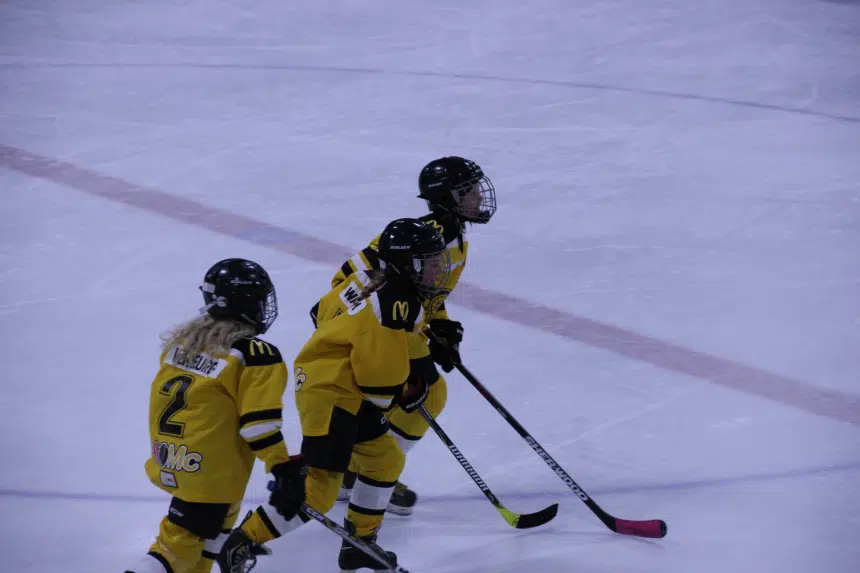TORONTO — The term ‘midget’ will be dropped along with other traditional age group names across Hockey Canada programs in a change that’s being applauded by members of the little people community.
“Hockey was our mountain and we’ve climbed it,” Little People of Manitoba president Samantha Rayburn-Trubyk said Tuesday from Winnipeg.
The governing body of hockey in Canada plans to replace categories like midget, novice, peewee, bantam and atom with age-based designators starting next season. The change was approved at Hockey Canada’s winter congress over the weekend.
“We want to be an inclusive brand, we want to be an inclusive sport, we want to be an inclusive organization,” said Mark Halliday, Hockey Canada’s vice-president of marketing and communications. “If there were groups that had some discomfort with a name, we wanted to look at that and make sure that we weren’t putting up barriers to keep people away from the sport.”
The term ‘midget’ has long been used in a variety of sports even though it is considered by many to be a derogatory slur.
“It’s not about sensitivity,” said Allan Redford, the president of the Little People of Canada. “It’s about awareness, acceptance and dignity. It’s often sometimes difficult to imagine the challenges that people with short stature face.”
The issue generated some buzz a year ago when Regina Scott of Guelph, Ont., who has a young son with dwarfism, helped make a change at her local youth basketball association after noticing the term on a banner at a mall.
The Ontario Basketball Association later announced it also planned to drop the ‘midget’ term, a move supported by Canada Basketball, which already used age descriptors.
Many provincial and national associations followed suit.
Redford credits Scott for being a catalyst that helped push the story to the forefront. He added that a letter-writing campaign to various domestic sport federations also had an “overwhelmingly positive” response.
“It means a lot to our group as we step forward to obtaining dignity and respect,” said Redford, who also serves as a director with the Dwarf Athletic Association of Canada.
The International Ice Hockey Federation and USA Hockey already use age designators. Hockey Canada initiated its change in conjunction with its provincial and territorial members and following the recommendations of a task team.
The federation had classified the midget category as players who are under 18 as of Dec. 31 of the current season. Bantam is for athletes under 15, with peewee, atom and novice used as classifications for younger players. Some organizations use descriptors like minor midget and major midget as well.
Moving to age-specific categories (U13 for under-13, U11 for under-11, etc.,) should also help make for a simpler classification system.
“It’s something new for (Canadian) hockey and we’ve got a long history of using other names,” Halliday said from Calgary. “But we think it’s going to be a much simpler process for people who may not be familiar with the long history of hockey.”
Redford said the term ‘midget’ originates from the oppression and exploitation of people with dwarfism in freak shows in the mid-1800s.
“The bottom line is the m-word is attached to trauma,” he said. “Every time that it’s seen or heard, it is hurtful.”
The term is still used in some tournament titles. One of the more prominent events is the Dec. 26-Jan. 1 Mac’s Midget AAA World Invitational Tournament in Calgary, an international competition first held in 1978 as the CP Challenge Cup.
It wasn’t clear if a name change might be forthcoming. A message left with tournament organizers wasn’t immediately returned.
Gregory Strong, The Canadian Press







